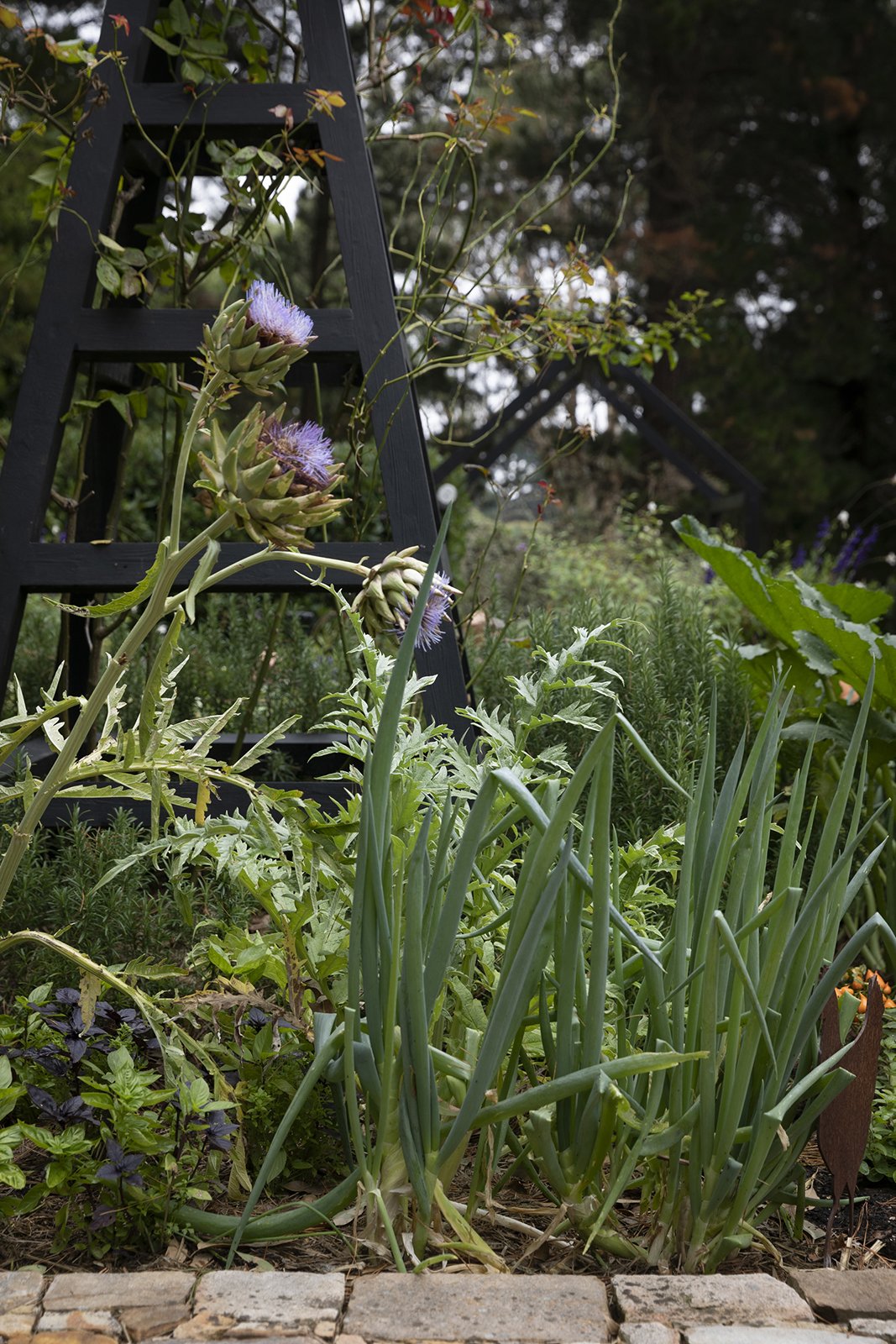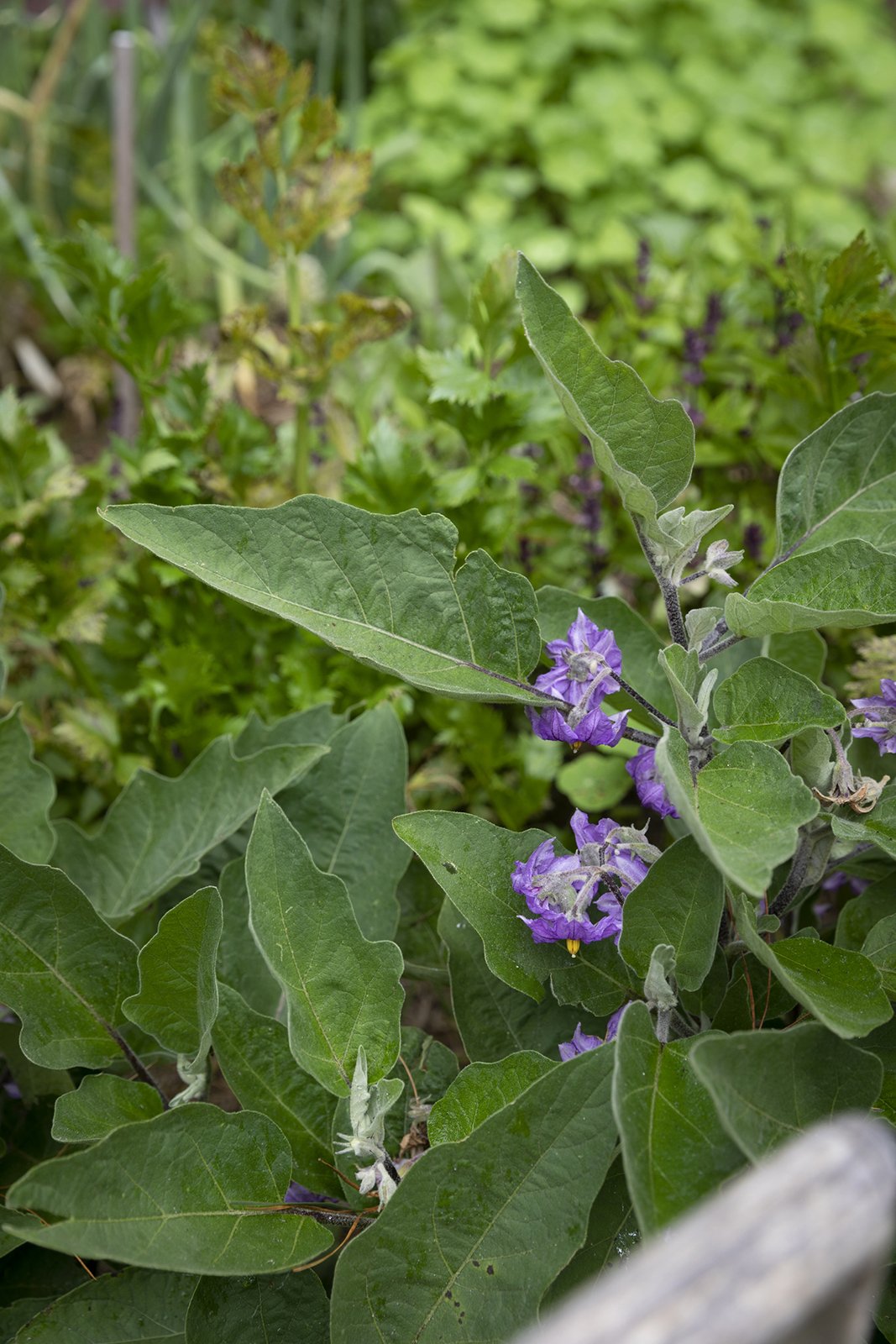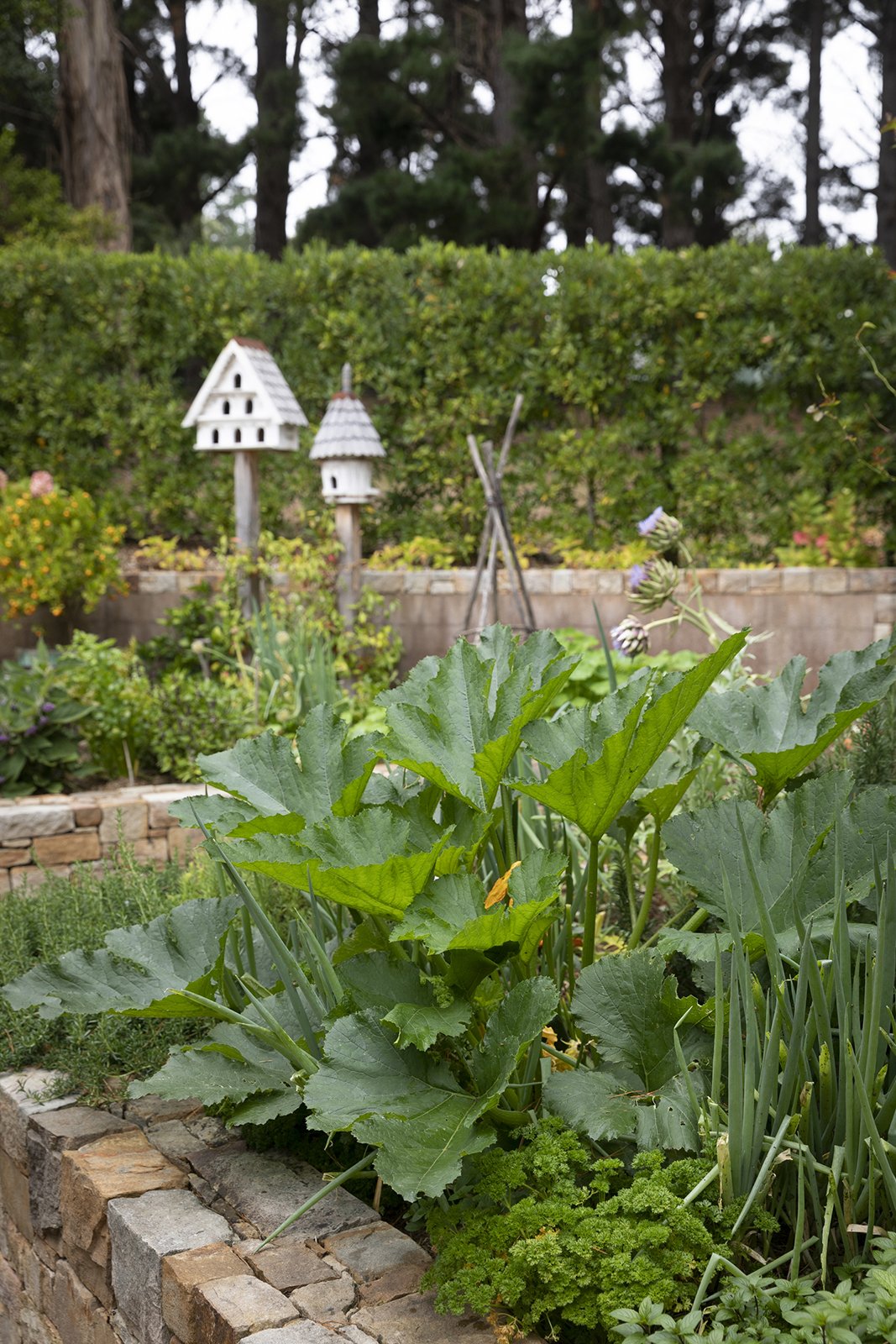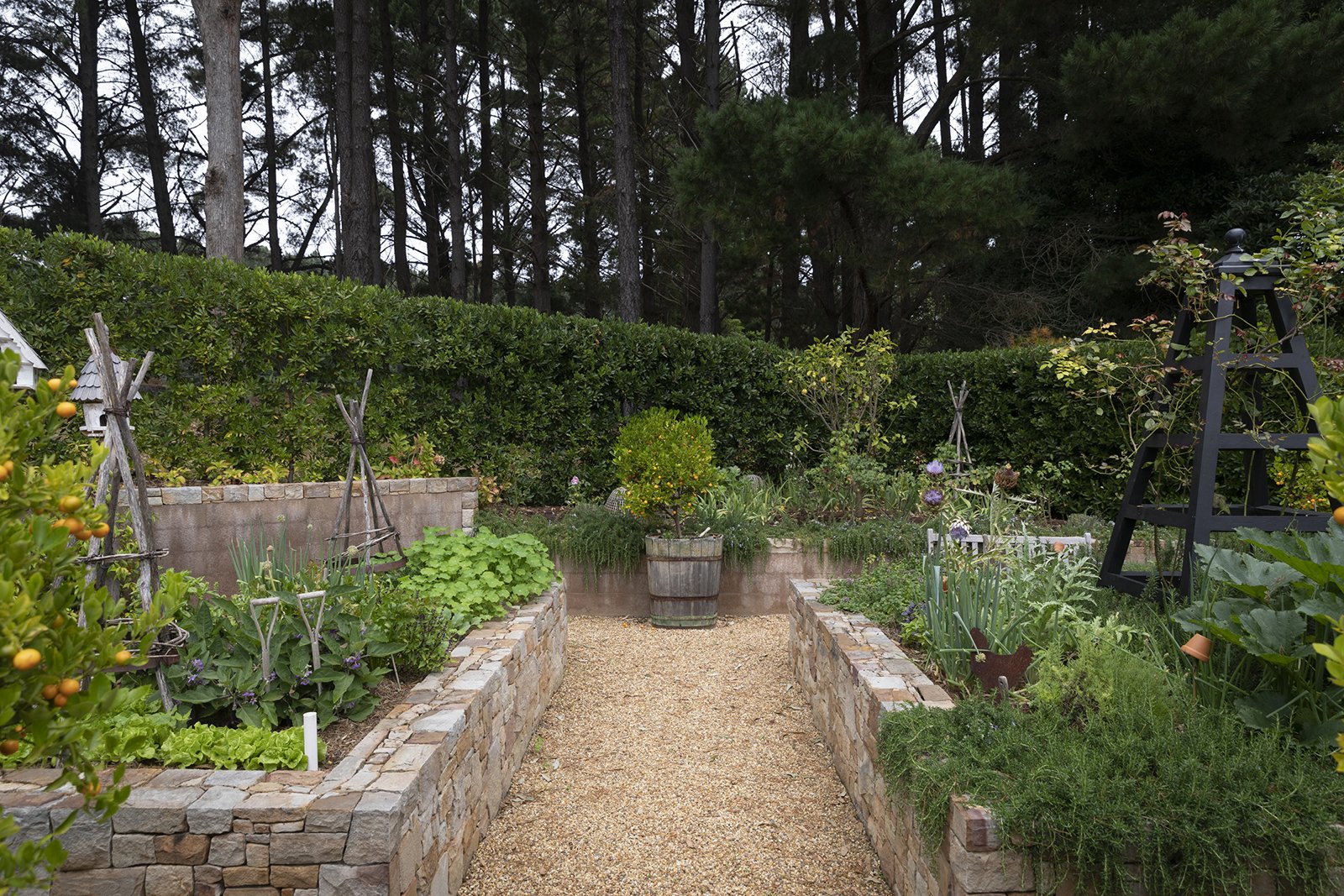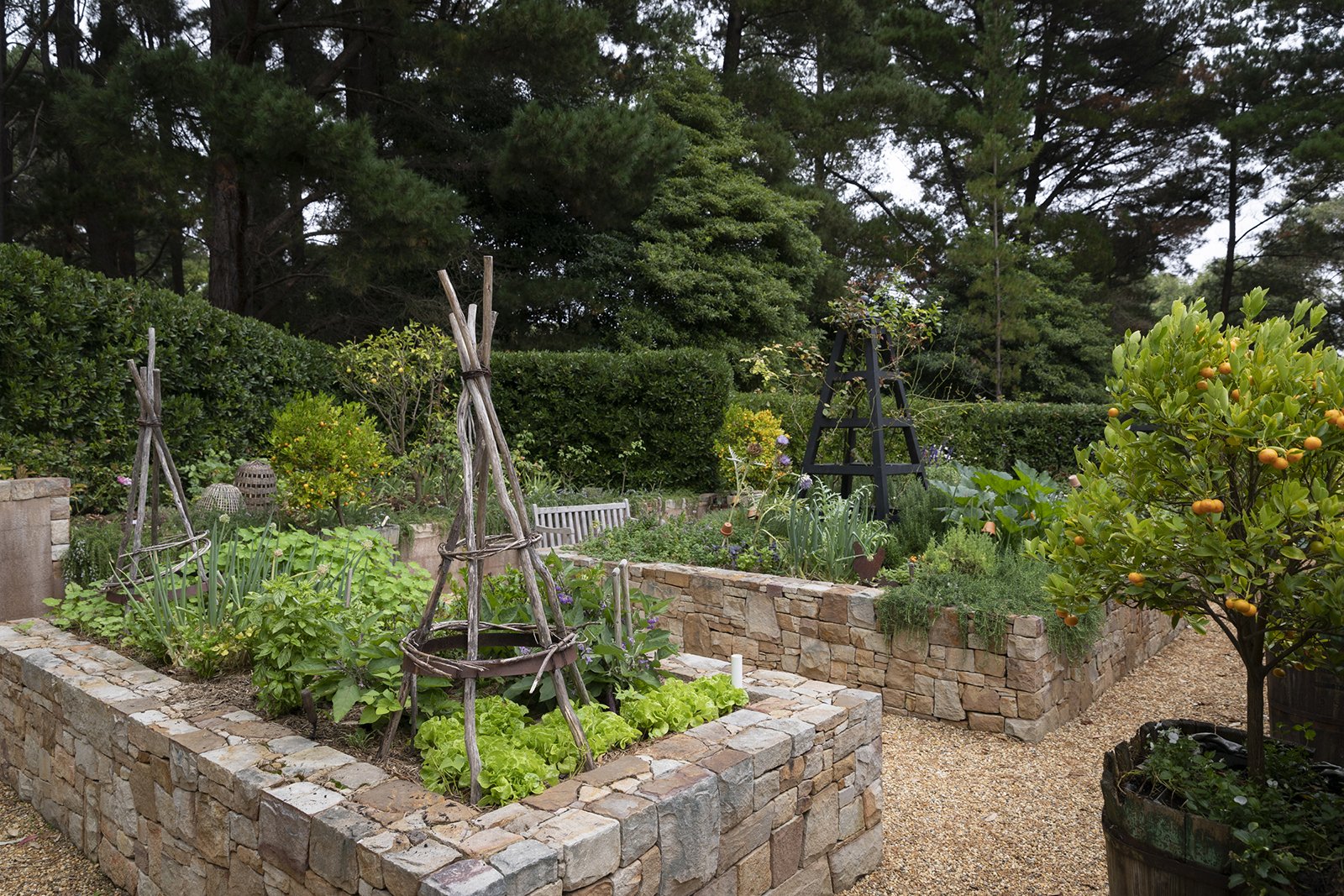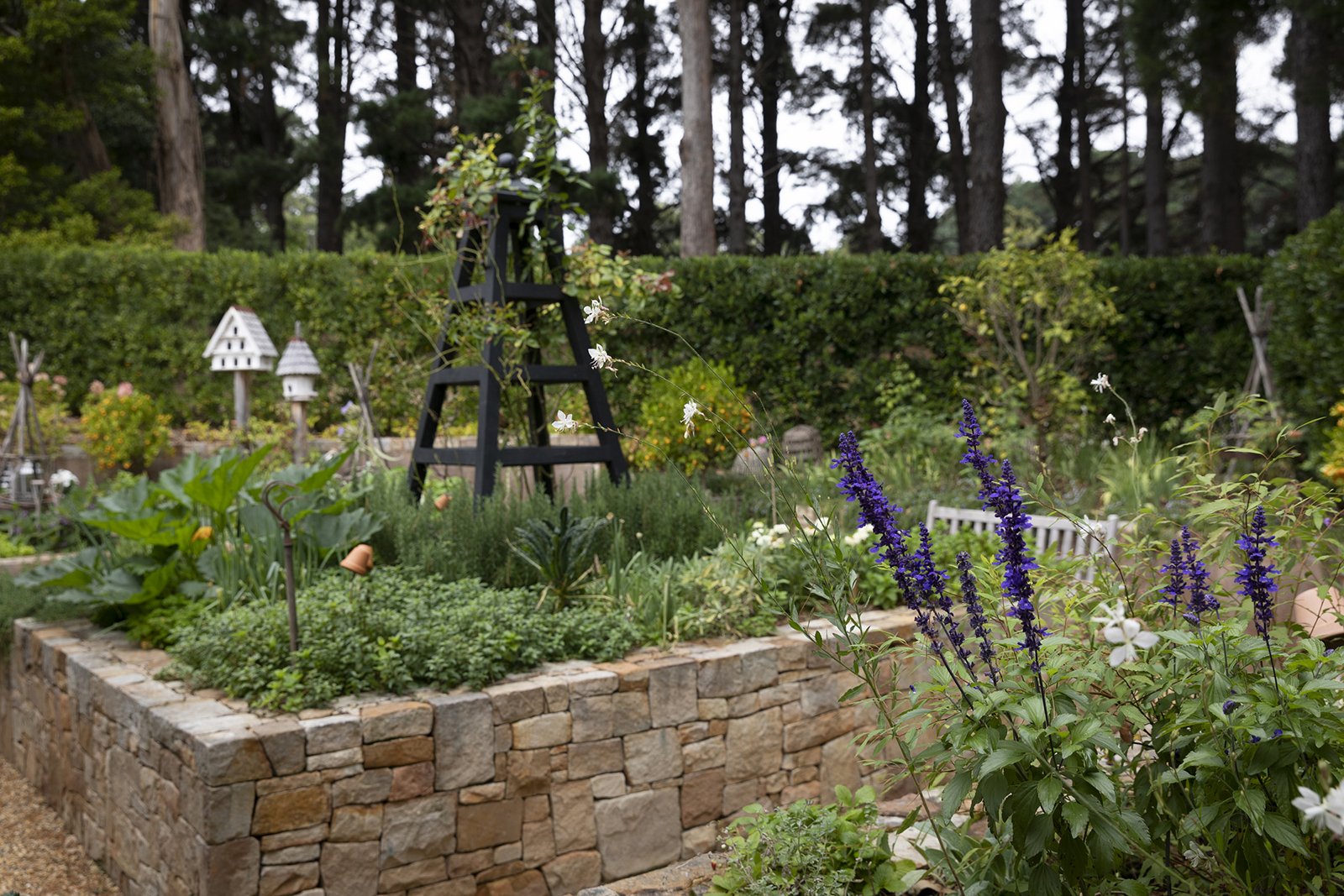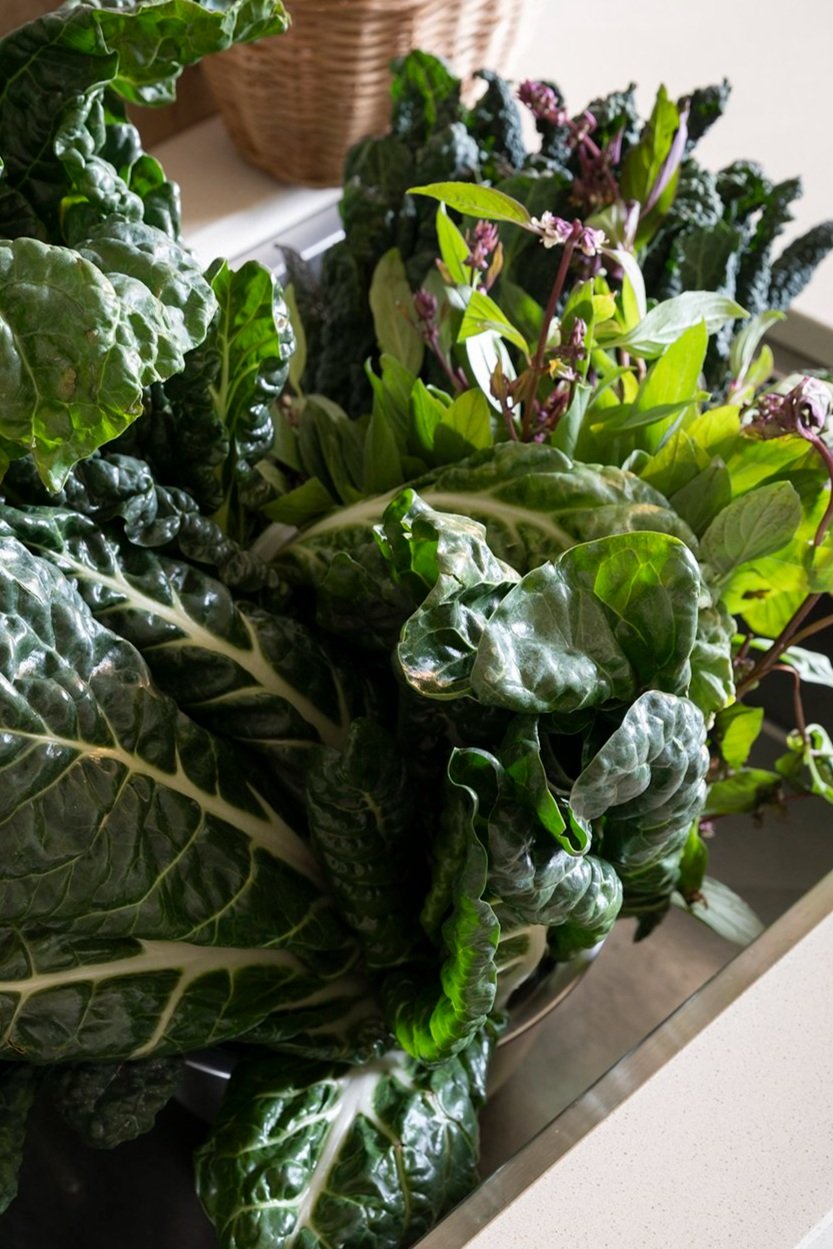A Sneak Peek Into My Winter Garden
WORDS: CHYKA KEEBAUGH
IMAGES: MARCEL AUCAR
I love an afternoon in the garden…
Gardening, especially planning and growing a winter vegetable patch, brings me so much joy. You reap the benefits with the produce grown; the relaxation and benefits can be incredibly rewarding. There is a great sense of achievement walking from the patch with a handful of herbs and a few vegetables to add to our meals.
Gardening allows you to connect with the natural world, observing the growth and changes of plants, weather, and seasons. I love researching what’s best to plant for each season, what worked last time and what didn’t! Designing your garden, choosing plant combinations, and experimenting with different layouts and arrangements let you express your creative side as well as physically. Working outdoors can be as physical as you like it - activities like digging, planting, weeding, and harvesting can contribute to a healthier lifestyle and be incredibly calming and stress-relieving. Tending to plants and being outdoors can have therapeutic effects on mental well-being, and I love that!
Easy plants for a winter vegetable patch…
Lettuce: Varieties like butterhead, romaine, and looseleaf lettuce are cold-hardy and can be harvested for fresh salads, Asian cooking and crunchy sandwich fillings.
Spinach: This nutrient-rich green thrives in cooler temperatures and can be harvested for salads or cooking. Or best when in a delicious cheese pie!
Kale: A superfood that withstands cold well and continues to grow even in frosty conditions.
Carrots: These root vegetables can be left in the ground over the winter, and their flavour can actually improve with a touch of frost. Perfect for roasting!
Radishes: Quick-growing radishes can be a great option for a fast yield in your winter garden.
Broccoli: With proper protection, broccoli can produce florets well into the winter months.
Cabbage: Varieties like savoy and winter cabbage can be harvested for coleslaw, sautéing, or fermenting.
Watching seeds sprout, plants grow, and eventually harvesting your produce can provide a profound sense of achievement and pride. Gardening is a continuous learning experience. You'll discover new facts about plants, ecosystems, and gardening techniques, fostering curiosity and personal growth. Homegrown vegetables often taste better and are more nutritious than their store-bought counterparts. The satisfaction of eating something you've nurtured is unmatched.


